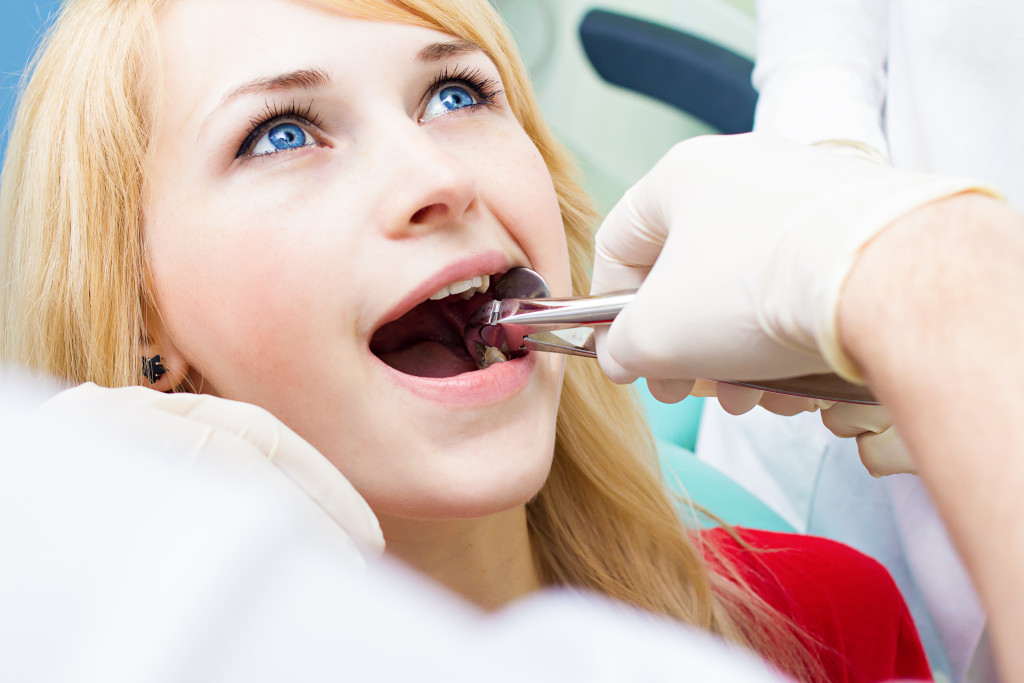- Brush and floss daily to remove plaque, tartar, and bacteria from teeth.
- Have regular checkups with the dentist for professional cleaning, cavity detection and treatment, and oral cancer screening.
- Adopt better dietary habits such as eating a balanced diet low in sugar and processed food, reducing consumption of acidic beverages, stay hydrated by drinking water.
- Avoid smoking tobacco, using chewing tobacco, drinking alcohol in excess, and chewing on complex objects to prevent tooth damage.
- Follow preventive steps for optimal dental health by maintaining good oral hygiene habits and following the dentist’s recommended advice.
Dental hygiene habits are essential for maintaining good dental health. Poor oral hygiene can lead to dental health problems like tooth decay and gum disease. According to the Centers for Disease Control and Prevention (CDC), nearly half of the adults aged 30 and over have some form of periodontal disease, an advanced form of gum disease that can cause tooth loss if left untreated.
Daily brushing and flossing are essential in preventing dental problems because they help remove debris, plaque, and bacteria from teeth, which otherwise may accumulate and cause various issues. Most people follow those dental needs because they understand the importance of maintaining healthy teeth.
Besides brushing and flossing, there are a few other measures that individuals should take to maintain optimal dental health. Here are the steps to take for dental health.
Regular Checkups with the Dentist

Regular checkups with the dentist are essential for maintaining optimal dental health. These checkups enable dentists to identify issues that may not be visible during routine brushing and flossing and provide timely treatment before the problem worsens. Here are some of the most important tasks you should do at a dental checkup:
Professional Cleaning
Professional cleaning is one of the primary functions of a dental checkup. During this process, a hygienist removes plaque, tartar, and bacteria from your teeth using specialized tools. This helps prevent tooth decay, gum disease, and other oral health problems.
Oral Cancer Screening
During a dental checkup, your dentist will perform an oral cancer screening test to look for signs of oral cancer or pre-cancerous cells in your mouth. This test can help early detection and successful treatment of any potential cancers.
Cavity Detection and Treatment
Dentists use advanced technology such as X-rays to detect cavities in hard-to-see areas between teeth. Once they’ve seen any cavities or decay, they can treat them immediately with fillings or other treatments to restore your teeth to health. If you have cracked or damaged teeth, the dentist will also add dental crowns for teeth to prevent further problems.
Education on Dental Care Habits
A key element of regular dental checkups is education about maintaining good oral hygiene habits at home between visits. Your dentist can provide helpful tips on proper brushing, flossing, diet choices for healthier teeth, and other practices that reduce the risk of developing tooth decay or gum disease over time.
Better Dietary Habits
Good diet habits are essential for good dental health. Eating a balanced diet low in sugar and processed foods can help reduce the risk of tooth decay and other oral health issues. The American Dental Association (ADA) recommends limiting sugary snacks and drinks, avoiding sticky and chewy foods, and eating more fresh fruits, vegetables, dairy products, whole grains, and lean proteins.
A healthy diet should contain all the essential nutrients, including vitamins, minerals, and antioxidants that support the overall health of your body and teeth. Calcium-rich foods such as dairy products are necessary for keeping teeth strong, while vitamins A and C help keep gums healthy. In addition to a balanced diet, reducing the consumption of acidic beverages like soda or sports drinks helps prevent enamel erosion in teeth.
Additionally, staying hydrated by drinking plenty of water throughout the day benefits dental health as it helps wash away food particles from the mouth. Drinking plenty of water after eating sugary or acidic foods is especially important to reduce their effects on your teeth.
Avoiding Teeth-Damaging Products

Smoking tobacco, using chewing tobacco, and using other forms of tobacco products can have severe consequences for your oral health. Studies have shown that tobacco use significantly increases the risk of developing gum disease, tooth loss, and oral cancers. Smoking also weakens the immune system and can make it more difficult for the body to fight off bacterial infections in the mouth.
Besides smoking, people should also avoid drinking alcohol in excess as this can lead to dry mouth. A lack of saliva production due to alcohol consumption causes bacteria to thrive, creating an environment in which cavities, tartar buildup, gum disease, and other dental issues can occur.
Chewing on complex objects such as ice cubes or pens can damage teeth over time by chipping the enamel or cracking a tooth. Avoiding these habits is essential for preserving dental health.
Final Thoughts
The importance of dental health should not be underestimated. Taking preventive steps such as brushing and flossing daily, having regular checkups with the dentist, adopting better dietary habits, and avoiding teeth-damaging products can help ensure good oral hygiene and healthy teeth for years. Following these steps will go a long way in maintaining optimal dental health.
